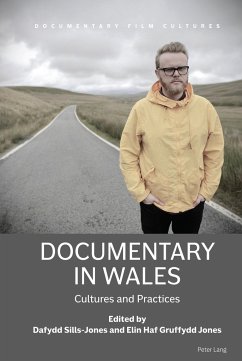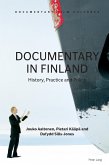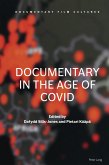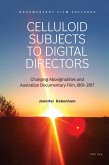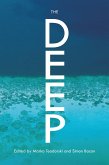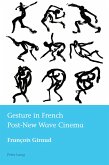Documentary, in a small, bilingual nation such as Wales, experiences many of the same challenges that it faces across the world. As the costs of professional documentary production lessen, and the potentialities of internet distribution loosen the grip of its traditional tele-cinematic gatekeepers, documentary production communities face both the potential of new distribution avenues and severe professional precarity.
In Wales, the dynamics of this transformation unfolds according to a specific historical, political and cultural situation. With funding, regulatory frameworks, audience taste, viewing figures, and contractual territories all mostly emanating or controlled from across the border in England, at times it is difficult to identify texts that can and can't be claimed as «Welsh». But then again, contingency and struggle have always been fundamental aspects of Welsh cultural identity.
What emerges is not so much the documentary culture of a small nation, but a documentary culture that is still struggling to come to terms with itself, giving Welsh documentary a character defined by a specific set of features: the political and cultural interplay of two languages, a continuation of older British public service broadcasting traditions, the acceptance of the marginal, the close interconnectedness of key players and the often paralysing effect of underfunding.
In Wales, the dynamics of this transformation unfolds according to a specific historical, political and cultural situation. With funding, regulatory frameworks, audience taste, viewing figures, and contractual territories all mostly emanating or controlled from across the border in England, at times it is difficult to identify texts that can and can't be claimed as «Welsh». But then again, contingency and struggle have always been fundamental aspects of Welsh cultural identity.
What emerges is not so much the documentary culture of a small nation, but a documentary culture that is still struggling to come to terms with itself, giving Welsh documentary a character defined by a specific set of features: the political and cultural interplay of two languages, a continuation of older British public service broadcasting traditions, the acceptance of the marginal, the close interconnectedness of key players and the often paralysing effect of underfunding.
«This timely volume presents a series of thoughtful articles by a diverse group of practitioners and academics that explore and extend our understanding of the complexity of the term 'Welsh documentary'. Engaging and eloquently argued, this is essential reading, a landmark in the literature on cinema and broadcasting in Wales.» (John Burgan, MetFilm School, Berlin and Zelig School for Documentary, Television and New Media (Bozen/Bolzano))
«When identity politics coincided with the growth of television, analysis of what it means to be Welsh was done on screen. Documentary makers captured a small, complex country with an evolving political, social and linguistic identity. This is a must-read on the power of the documentary maker to analyse and influence thinking.» (Professor Dame Elan Closs Stephens, Non-Executive Director of the BBC and Pro-Chancellor of Aberystwyth University)
«When identity politics coincided with the growth of television, analysis of what it means to be Welsh was done on screen. Documentary makers captured a small, complex country with an evolving political, social and linguistic identity. This is a must-read on the power of the documentary maker to analyse and influence thinking.» (Professor Dame Elan Closs Stephens, Non-Executive Director of the BBC and Pro-Chancellor of Aberystwyth University)

